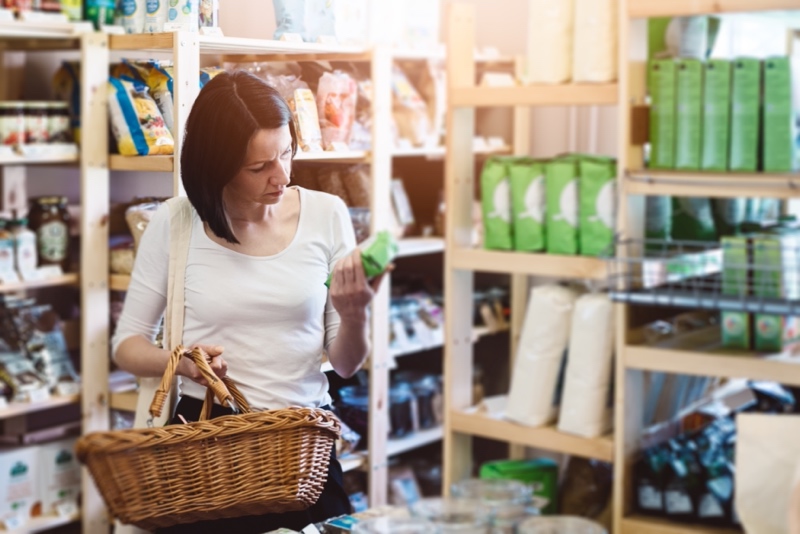Polysorbate 20 is a general-purpose hydrophilic, nonionic surfactant. Its stability and relative nontoxicity allow it to be used in many sectors like.
- Food applications
- Biotechnical applications
- Pharmaceutics applications
- Industrial applications
- Health and personal care applications
Food Applications
- It is used in flavored mouth drops as a wetting agent. It helps to spread out the other ingredients like SD alcohol and mint.
- It is used as an effective stabilizer and emulsifier in a wide range of food products
- WHO has suggested under 25 mg of polysorbate 20 per kg body weight.
- Can be used in whipped toppings, cake icing, cake mixes, salad dressings, and chocolate syrups
- It is used in mineral oil and waxes for protective coatings on fruits and vegetables.
Biotechnical Applications
- It is used as a washing agent and detergent
- Used in room sprays, floor cleansers, and toners
- Helps to saturate binding sites on surfaces like coating polystyrene microplate
- To stabilize PPD, purified protein derivative solution is used in skin testing for TB exposure
Pharmaceutics applications
- Used as an inactive substance (alongside the active ingredient) in the pharmaceutical industry for long-term stabilization between emulsions and suspensions i.e., they are in certain medications like Therazinc spray, etc.
Industrial applications
- Used to remove stamps from envelopes and residue from stamps without harming the stamps.
- Used as a wetting agent in the elastomer industry
Health and personal care applications
- Used in personal care products like brands of baby wipes, baby oil, and tampons.
- Used in body wash and skin fresheners.
- Used in skincare products like sun lotion, body wash, cream deodorant, and cosmetic creams along with ingredients like Niacinamide and Retinol, Salicylic Acid, and Vitamin C.
- Used in facial cleanser and cleansing products, makeup, bases, foundations, mouthwashes, shampoos, and fragrance powders.
- Used in essential oils.

Is Polysorbate 20 harmful to humans?
They are researched to be inherently biodegradable in nature that exhibits a minimal impact on the environment. Also, they are considered to be safe for human consumption in moderate quantities as the studies show no genotoxicity related to polysorbates.
However, ingestion of large amounts of Polysorbate 20 can lead to gastrointestinal distress like nausea, vomiting, or diarrhea.
Some studies have also suggested that the involvement of higher doses of Polysorbate 20 may cause developmental and reproductive toxicity in animal health.
Polysorbate 20 has been approved by FDA (US Food and Drug Administration) and EFSA (European Food Safety Authority) for its common use in the Pharmaceuticals, and cosmetic industry, as food additives, and other products in minimum to moderate amounts.
In my personal opinion, read the label of the products you use every single day and try to avoid polysorbate 20,60,80, ethylene oxide, and 1,4 dioxane in the ingredient list as much as possible.
Is Polysorbate 20 a carcinogen?
One of the biggest concerns regarding Polysorbates is the presence of carcinogens like ethylene oxide and 1,4 dioxane. When Polysorbate is ethoxylated, it can become contaminated with these dangerous carcinogens & can gain cancerous properties.
1,4 dioxane is a known animal carcinogen that penetrates readily into the skin and its moderate doses cause skin allergies.
How to avoid Polysorbate 20?

- Read the labels. Avoid things that contain toxic surfactants and over-the-top fragrances.
- Most importantly, any brand or product can write ‘natural’ on them, because there are no federal criteria dictating standards for what makes a product ‘natural’ this doesn’t mean they have no toxins.
- Avoid labels like ethylene oxide, 1,4 dioxane, formaldehyde, and all versions of polysorbate if you are looking out for safer products.
- Be safe, research for yourself and for your family’s safety. Opt for nontoxic, natural options & organic food ingredients (whole foods stores have a good collection of all organic foods)
Is Polysorbate 20 a natural ingredient?
No, it’s not a natural ingredient. Although Polysorbate in its original form is harmless and is derived from sorbitol (sugar alcohol) which is a natural ingredient. When Polysorbate is ethoxylated, means when reacted with 20 parts of ethylene oxide and 1,4 dioxane, it becomes Polysorbate 20 and becomes a carcinogen which can be cancerous and definitely not a natural ingredient.
What is another name for Polysorbate 20?
The common commercial brand names are Kolliphor PS 20, Scattics, Alkest TW 20, Canarcel, Kotilen 20 and Tween 20.
What are the side effects of Polysorbate 20?
If you’re exposed too frequently to its products in any form, you develop serious conditions like reproductive toxicity, cancer, intestinal issues, respiratory issues, skin irritation, and skin allergies
Is Polysorbate 20 safe in cosmetics?
Not really, few ingredients like ethylene oxide, 1,4 dioxane, formaldehyde, and Polysorbate 20 and all other versions of it are known for their toxic nature and cancerous properties. Try and avoid the risk. Even if your skincare products have other great ingredients like Sunflower Oil, avoid them if they have Polysorbate 20. Esp. for your babies.
Is Polysorbate safe in food?
- Polysorbates 60, and 80 are used as an additive in processed food products for their ability to prevent fats from spreading out. This means they extend their shelf lives and improve crumb color and strength.
- Foods like ice-creams, frozen desserts, baking mixes, whipped toppings, chocolate syrups, cake icings, gelatin desserts, shortenings, canned vegetables, etc.
- They are not completely safe in food products. If polysorbate 60 is not digested properly by our system, it can enhance bacterial translocation across intestinal epithelia which increases Crohn’s disease.
- Certain strict limitation of mg is regulated for polysorbate 80 to be put in food items by FDA. If eaten regularly, Polysorbate 80 increases intestinal permeability which ultimately affects the body’s ability to absorb nutrients esp. potassium, and calcium.
Takeaway
- If you get exposed to this ingredient occasionally only, you are fine. The problem is this ingredient is subtly put in a lot of food, cosmetics & household things, out of which we use 5-10 items every single day in some form.
- And the exposure that way could be adding up esp. food items which we eat directly and cosmetics which penetrate the human skin and then into the bloodstream.
Take out time when you buy things, read the ingredient list always & prioritize shopping from organic shops for the safety of you and your family.
Love ~ Beauty Stroll
References
https://en.wikipedia.org/wiki/Polysorbate_20
https://www.nist.gov/publications/adsorption-polysorbate-20-and-proteins-hydrophobic-polystyrene-surfaces-studied-neutron
You may also like these articles
Ivory skin- what is it and how to take care of it?
Amanda Batula’s weight loss secrets are finally revealed!
Chrissy Metz’s weight loss journey was hard!
25 best Korean Moisturizers in the market